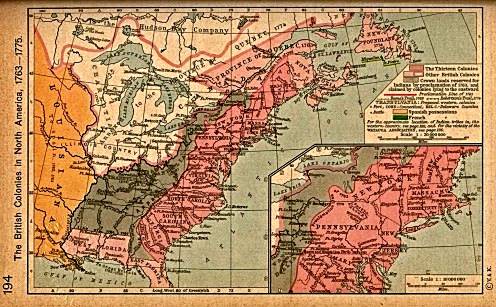| European
expansion, including the planting of Christianity, strongly influenced
by Puritanism. |
 |
|
|
Several Protestant
countries laid claim to parts of the eastern seaboard in the seventeenth
century; all claimed an interest in evangelizing Native
Americans, but in this none were very successful. England consolidated
the area into 13 English Colonies. In the south, the first permanent English
settlement was founded at Jamestown, Virginia in 1607. Soon the slave
trade brought Africans, whose descendants formed the African-American
churches. Anglicanism was the established religion of southern colonies,
including Maryland, despite its beginnings as a haven for Roman Catholics.
In New England, Puritans held sway; their
legacy, shaped American life through congregationalism, social reform,
literacy and representative government. The middle colonies had a mixture
of Christian groups. Rhode Island and Pennsylvania, in particular, set
precedents for religious pluralism.
In the mid eighteenth-century, a religious revival called the Great
Awakening swept through the colonies. It set the stage for Methodists
and Baptists to become the largest Protestant denominations. After the
American Revolution, the constitutional settlement guaranteed religious
freedom. By the mid to late nineteenth
century immigration made Roman Catholicism the largest expression
of Christianity in the United States.
|